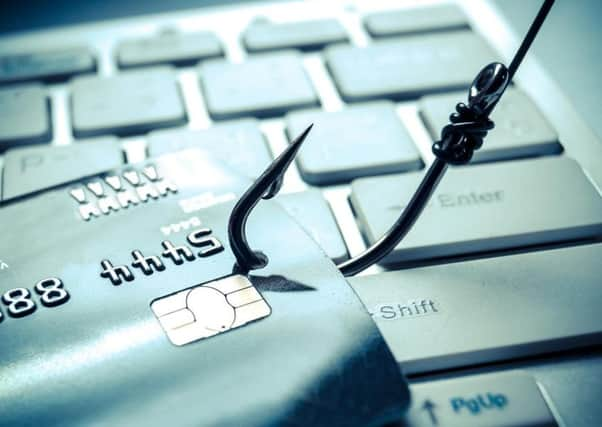£17,500 taken from local man's bank account during telephone scam


Police said that the man had received a phone call on Monday, February 26 from someone claiming to be from BT, they asked for the IP address of his computer.
Detective Constable Ruth Gallagher said: “The injured party in this incident received a phone call from a female at around 3:30pm claiming to be from British Telecom (BT).
Advertisement
Hide AdAdvertisement
Hide Ad“The caller was able to tell the injured party he had been experiencing internet problems for some time, and that his IP address was being used elsewhere and he needed to get rid of it. The caller then transferred the injured party to another male, who she described as a ‘technician’.
“The ‘technician’ told the injured party to search for his IP address online, which he did. The search informed the injured party the IP location was Mountain View, California USA. The ‘technician’ then directed the injured party to download two programs, which gave the suspect remote access to the injured party’s computer, including emails and online banking.
“The ‘technician’ asked the injured party to go to a modem, which he was aware was in another room, and told him another modem from BT would be delivered that evening. This appeared to allow the technician time to make internal transactions on the injured party’s bank accounts. The ‘Technician’ asked injured party to input codes that had been provided by bank to ‘allow the security program to run and then said the security program would take a while and suggested the injured party make a cup of tea.
“The ‘technician’ then told injured party to keep his phone line on, and the BT engineer delivering the modem later that day would disable this. That was the end of the conversation.”
Advertisement
Hide AdAdvertisement
Hide AdShe added: “Later that evening, after the injured party heard a buzzing tone from his telephone. He was suspicious and checked his bank account to discover around £17,500 had been withdrawn.
“This was a sophisticated fraud. The injured party was conned into downloading programs onto his own computer to allow the suspect to access his computer.
“This is an example which illustrates how easily scammers can extract large sums of money from unsuspecting members of the public.
“It is therefore extremely important to take time to consider who it is we are speaking to when we receive an unsolicited call and always be wary of any individual that cold calls you. Be especially suspicious of anyone who asks for money, banking or credit card information or who asks to gain access remotely to your computer. It is highly unusual for any legitimate company or organisation to demand money over the phone or ask to gain access to your computer.
Advertisement
Hide AdAdvertisement
Hide Ad“If you are at all suspicious about a call that you receive, ask for their name and the department they are in, hang up, and phone the organisation that the person is purporting to represent to check their authenticity. Ideally make the call from another telephone so you can be sure the original caller has not remained on the line. Please use a verified contact number from an official website or an official documents from the organisation.
“If you have received a call of this kind or are concerned by the intent of unsolicited calls, emails or letters then please report it to Action Fraud via their website www.actionfraud.police.uk or by phoning 0300 123 2040, or call police on the non-emergency number 101.
“Further advice and information can also be obtained by visiting www.nidirect.gov.uk/scamwiseni.”
And remember, if you can spot a scam you can stop a scam.
“Anyone who has any information about this is asked to contact Detectives in Lisburn on the non-emergency number 101, quoting reference number 1147 of 26/02/18.
Advertisement
Hide AdAdvertisement
Hide Ad“Alternatively, information can also be provided to the independent charity Crimestoppers on 0800 555 111 which is 100% anonymous and gives people the power to speak up and stop crime.”
“Please discuss this with family and friends and spread the word to avoid someone you know being the victim of this type of crime.
“For general advice on how to stay safe online, visit www.GetSafeOnline.org”